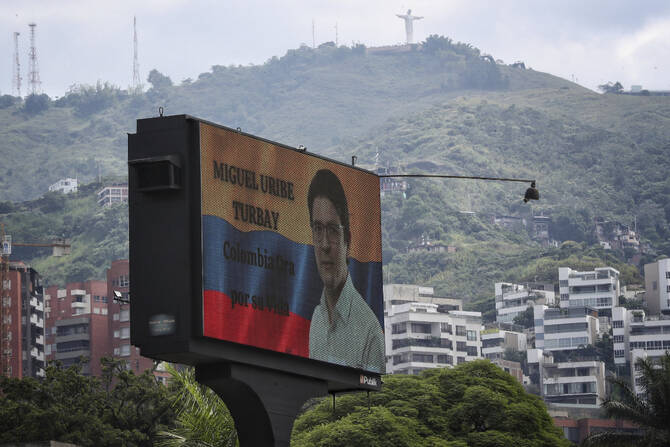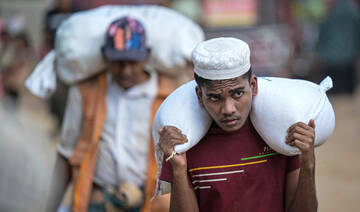Conservative Colombian Sen. Miguel Uribe Turbay was shot and seriously injured during a campaign rally in the capital, Bogota. The brazen attack captured on video shook a nation that decades ago regularly saw kidnappings and killings of politicians and high profile people.
Uribe Turbay, 39, who has announced he intends to run for president next year, was in serious condition following surgery Sunday, a day after the shooting, and doctors said he was going through “critical hours.”
Here’s what to know about the conservative politician:
Presidential contender
A member of the right-wing Democratic Center party, Uribe Turbay has become a prominent opposition voice against the government of President Gustavo Petro, the first leftist politician to become the leader of Colombia. Petro cannot seek reelection in 2026.
Uribe Turbay, whose family had also suffered political violence, launched his presidential bid in March. In October last year, he had posted a video on social media announcing his intention to run, choosing the mountains of Copacabana in the department of Antioquia as a backdrop.
The country will hold a presidential election on May 31, 2026.
“A place with deep meaning for me,” he said in the video. “It was here that my mother was kidnapped by Pablo Escobar and was killed when I was about to turn five.”
His mother, journalist Diana Turbay, was abducted by the Medellin Cartel and killed in 1991, one of Colombia’s most violent periods.
The attack on Uribe Turbay on Saturday shocked the nation and revived memories of an era when political violence affected Colombian public life.
Prominent political family
Uribe Turbay entered politics early, being elected to Bogota’s City Council at age 25 in 2012. In 2016, he was appointed the city’s secretary of government by then-Mayor Enrique Peñalosa.
In 2022, he became senator after being invited to run by former President Álvaro Uribe Vélez, no relation.
Uribe Turbay was born into a prominent political family. He is the grandson of former President Julio César Turbay Ayala, who served from 1978 to 1982, and the paternal grandson of Rodrigo Uribe Echavarría, a former director of the Liberal Party.
He was not considered a front-runner in next year’s race, according to recent polls, and was still facing competition within his political coalition. In his pre-campaign messaging, Uribe Turbay focused heavily on security, seeking to inspire investments and promote economic stability.
‘Reserved prognosis’
The senator is going through what authorities have described as “critical hours” after undergoing surgery at a private clinic in Bogotá.
“He survived the procedure; these are critical moments and hours for his survival,” said Bogotá Mayor Carlos Galán early Sunday after receiving information from the medical staff at the Fundación Santa Fe clinic.
“His condition is extremely serious and the prognosis is reserved,” the clinic added hours later in a new medical report.
Police arrested a 15-year-old boy for the shooting, whom they considered the perpetrator. Authorities have not disclosed a motive.
Colombia’s Ombudsman’s Office condemned the attack, saying the country “cannot allow a return to dark times when violence sought to silence ideas, candidacies or political leadership.”
















